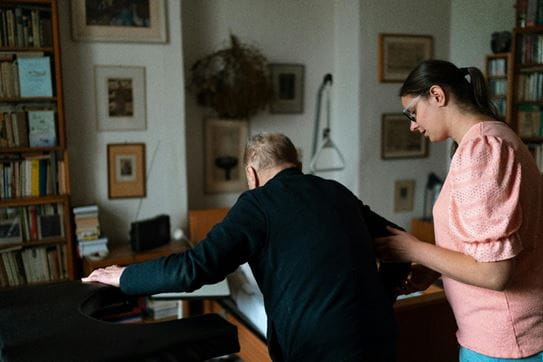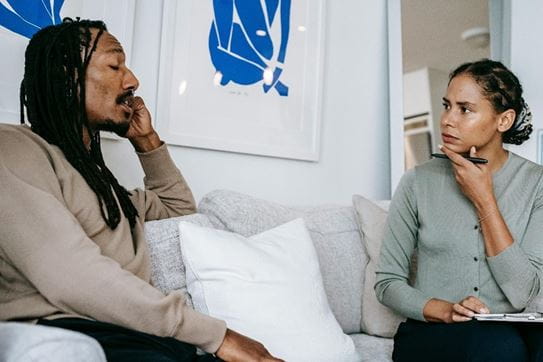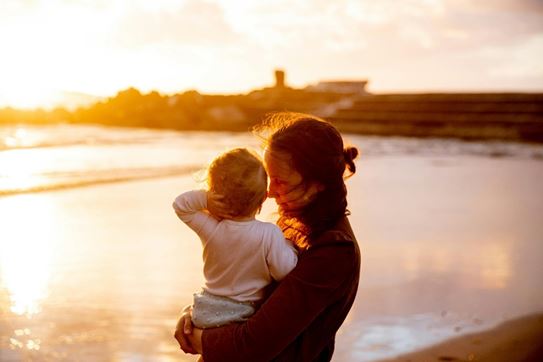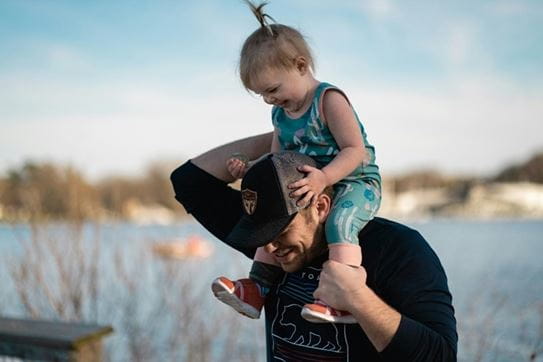Everyone grieves in their own way. We hope these tips on coping with different types of grief will help you process your feelings about your recent experiences.
Grief is the sense of loss you feel when you lose something or someone important to you. Most people connect grief with the death of a loved one, but you can grieve for other reasons. The way a person grieves also depends on many factors, like their personality, support systems in their life or whether the loss was expected or unexpected. We all go through this process in our own way, so it’s important to remember that there is no “right” way to grieve.
However, we hope these words of advice help you to take care of yourself, to face your own recent experiences.
1) Grieving can begin when you are expecting or waiting for a death to happen.
Anticipatory grief is the grief that occurs when you are waiting or expecting a death to happen. This is a time where you can slowly get used to the reality that someone will die soon. As you prepare, you can make time to finish something that you wish to complete with the dying person or strengthen your relationship with them. If the dying person has any special wishes related to any religious, spiritual or cultural practices around dying or after death, make sure to tell their caregivers and the healthcare team. Asking for these supports can ease your own grieving process.

2) It’s important to ask for help if you think your grief is getting worse.
“Complicated grief” is grief that does not improve or gets worse as time passes. It is important to ask for help when you feel you are having trouble moving forward. Speak to your family and doctor about further treatment. You may also find it helpful to speak with a mental health professional.

3) When a child dies, try to talk about your child with others to let them help you.
Many of us believe that children are not supposed to die before their parents. This kind of loss is devastating. You may feel shocked, or disbelief, even if your child’s death was expected. The death of a child can also lead to feelings of hopelessness and questioning long-held spiritual beliefs.
If you are feeling hopeless, it is important to speak to a doctor or counsellor right away. You can also try these strategies to help you cope with your grief:
- Talk openly about your grief with other members of your family and try to accept each other’s coping styles around grief.
- Let friends and family help you. They can help with childcare, housework or errands – allowing you more time to grieve.
- Try to talk about your child and mention their name. This can give others the chance to talk about them with you and provide support.
- Hold an annual event in your child’s memory. This can be a good way to remember your child. Planning the event and talking about your child during that time can be comforting.

4) When your children lose a sibling, support them and encourage them to talk about feelings.
When a sibling dies, the grieving child may react in many ways, depending on their personality and their family situation. They may take on a new role, such as becoming the oldest child or an only child. They may also feel like they need to make up for the sibling that is gone. This can add extra stress to their grief.
The way a child grieves can change as they develop and mature. And their feelings can be affected by other events in their lives. These are some ways to help them cope as they grow up:
- Encourage your child to talk about their grief and feelings.
- Find support from your healthcare team, social workers, grief workers, palliative care team or clergy to help answer your child’s questions.
- Reassure your child that it is normal for siblings to compete, argue and challenge each other. Help your child to forgive themselves for things they said or did.
- Let your child be a child and try not to tell them to take on extra responsibilities.
- Never compare siblings to your child who has died.
- Help your child find ways to remember their sibling and feel connected to them, like creating a family memory book.

5) You can grieve parts of your life that will not be the same after treatment.
You may grieve for many things other than the death of a loved one. Even when cancer treatments are successful, your outlook on your future can change. You may begin to think differently about your career, living situation or relationships with friends and family. Accepting your new normal after treatment can be a big shift to your personal identity and how you want to live your life going forward.
When big changes happen, not everyone reacts the same way. But the process of taking time to grieve can help you realize that you can still have a great and rewarding future, even if it’s different from what you previously imagined.
.jpg?h=362&iar=0&mw=543&w=543&rev=43bc2d42602945b082ecbcee14d8c708&hash=C65E8D0F71D61AB033BD7AF2A15E827E)
The people we love are always in our hearts and honouring our memories of them can help other people through their own grieving process. By donating in honour of the memory of a loved one, you can help others affected by cancer lead longer and fuller lives.
